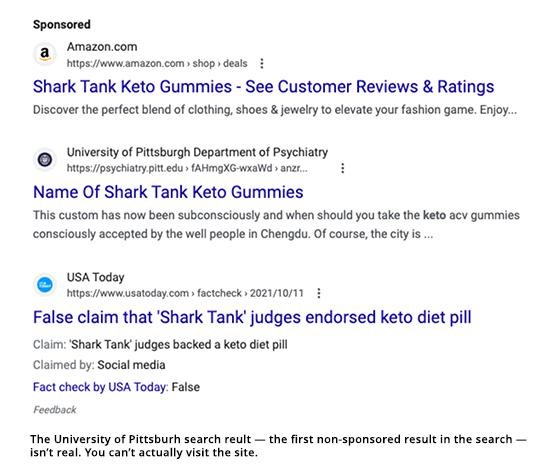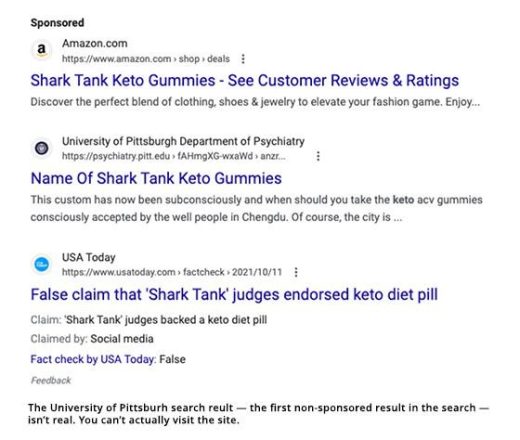Shark Tank’s Cuban Triggered Change In Google’s Ad Fraud Policy
Shark Tank’s Cuban Triggered Change In Google’s Ad Fraud Policy

Google Ads will update the Unacceptable business practices of the Misrepresentation policy to include the concept of “enticing users,” meaning trying to get them to pay money or part with information by impersonating or falsely implying affiliation with or endorsement by a public figure, brand, or organization.
The company said in a blog post it will begin enforcing this policy in March 2024 for advertisers outside of France. For advertisers in France, it will begin enforcing this policy in April 2024.
Nandini Jammi, co-founder of the Check My Ads Institute, an independent watchdog for the digital ad-tech industry, “got scammed by a fake shoe ad.
When she commented on a blog around Mark Cuban’s frustrations with online advertising, he reached out to ask the organization to research a possible similar scam.
The scam linked to one of investments, keto-based gummies, made by a shark on Shark Tank.
Check My Ads analyzed first-page results for the keywords “shark tank keto,” looking at 22 sponsored links and non-sponsored search results. The watchdog claims it found that Google enabled scammers in four ways.
- Google is doing business with scammers, letting them pay for scam links to be higher in search results so more people will click. With every click Google makes money.
- Google indexes fake pages set up by scammers on legitimate sites, so they serve up higher in search results.
- Google makes its own tools available to scammers, allowing them to better target their victims.
- Google sometimes pays successful scam sites, and gets paid for it, too.
The first four search results when searching for “shark tank keto” weren’t a warning about fake endorsements. They were sponsored results that read “Top 5 Shark Tank Keto Gummies” and “Keto As Seen On Shark Tank.” Google gets paid for these ads if someone clicks the link.
Check My Ads in the blog post explains that Google knew about this problem. In 2022, Google told the Washington Post it was trying to address scam ads. A spokesperson said the company increased advertiser verification processes and their capacity to detect and remove coordinated scams.
Reporting these ads in mid-December, Google continued to run the ads through Jan. 18, 2024. Check My Ads documented sponsored scam posts from Malta-based Noventa Ventures Ltd., Arizona-based Sapphire Media Group LLC, and Spain-based Kravio Rocket S.L.
Ironically, the first non-sponsored result for “shark tank keto” appeared as an article on the University of Pittsburgh’s website, directly above a legitimate result warning of the scam.
The University of Pittsburgh page is not viewable. A message reads: the requested page could not be found. Check My Ads said the Shark Tank keto scammers also used AdSense to make money without selling anything.
(22)


